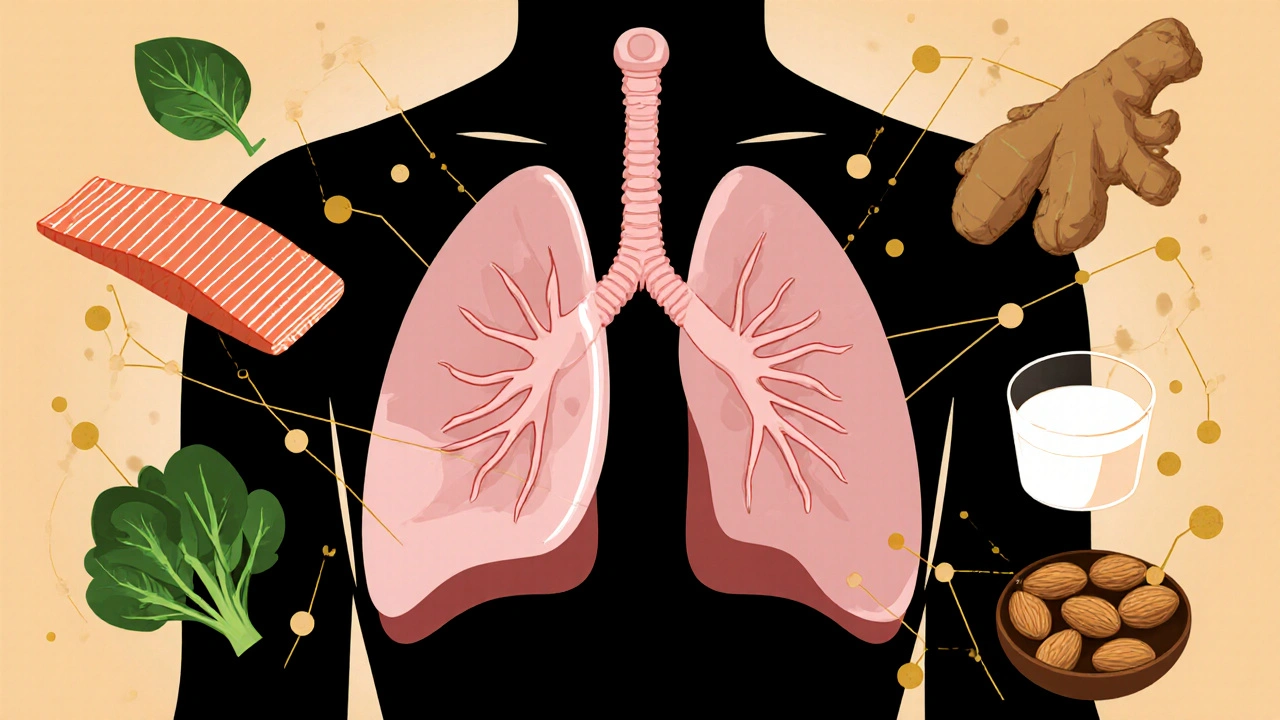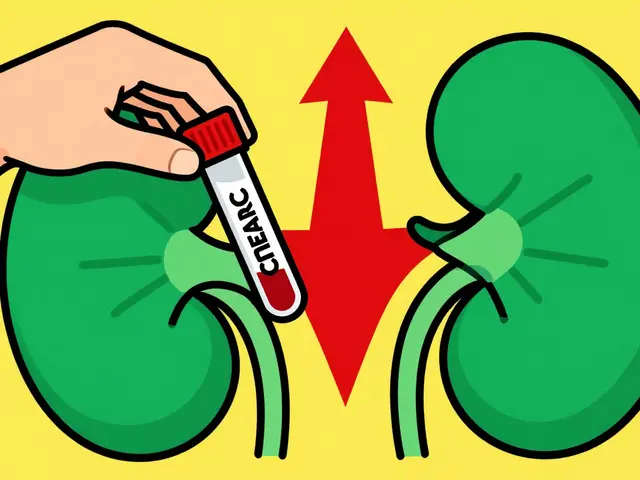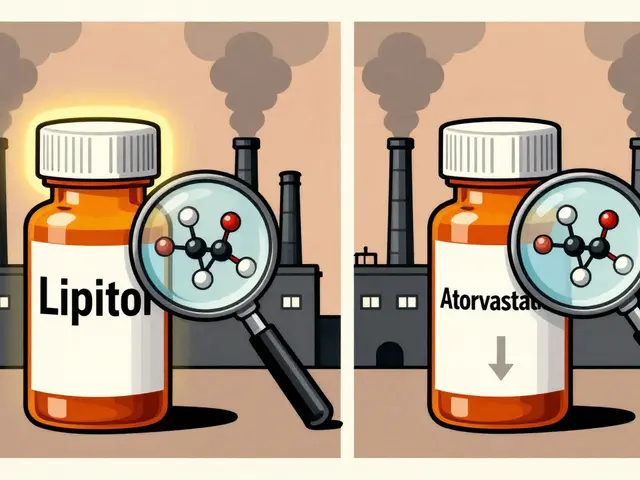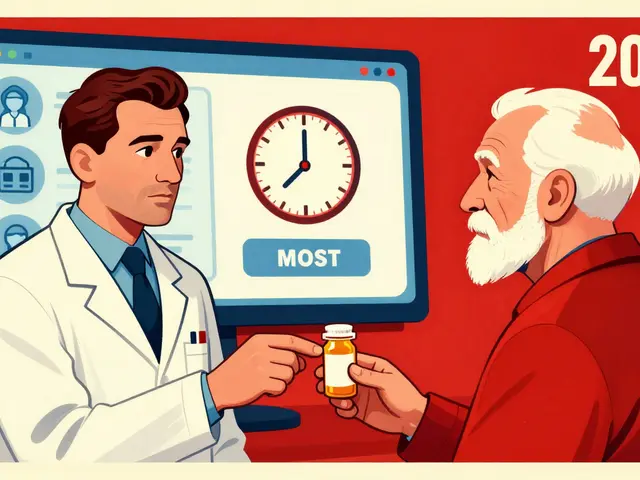Nutrition and Lung Health: What You Eat Directly Impacts Your Breathing
When we talk about nutrition and lung health, how food choices affect respiratory function and disease risk. Also known as dietary support for breathing, it’s not just about avoiding smoke or exercising—it’s about what’s on your plate. Your lungs don’t work in isolation. They’re affected by inflammation, mucus buildup, and oxidative stress—all of which respond directly to what you eat.
Anti-inflammatory foods, dietary choices that reduce chronic swelling in the airways like fatty fish, leafy greens, and berries help lower the risk of flare-ups in asthma and COPD. On the flip side, processed foods, sugary drinks, and excess salt can make breathing harder by triggering inflammation and fluid retention. Studies show people who eat more fruits and vegetables have better lung function, even after years of smoking. It’s not magic—it’s biology. Your body uses nutrients from food to repair lung tissue, strengthen the immune response, and keep airways open.
Vitamin D, a nutrient critical for immune regulation and lung defense is another key player. Low levels are linked to more frequent respiratory infections and worse outcomes in chronic lung diseases. You can get it from sunlight, eggs, and fortified foods—but many people still fall short. Same goes for magnesium, a mineral that helps relax the muscles around airways. It’s found in nuts, seeds, and whole grains, and low levels are tied to wheezing and tightness in the chest. Even small dietary fixes can make a difference.
What you avoid matters too. Dairy doesn’t cause mucus for everyone, but if you notice your breathing worsens after cheese or milk, cutting back might help. Same with alcohol—it dehydrates the airways and weakens the immune system’s ability to fight off lung infections. And while supplements like Coenzyme Q10, an antioxidant that supports cellular energy in lung tissue show promise in some studies, they’re no substitute for real food. Real nutrition means variety, not pills.
The connection between what you eat and how you breathe is stronger than most people realize. Whether you’re managing asthma, recovering from pneumonia, or just trying to stay healthy as you age, your diet is a tool—not a side note. The posts below give you real, practical advice on which foods help, which to skip, and how to adjust your eating habits to support better lung function. No fluff. Just what works.






